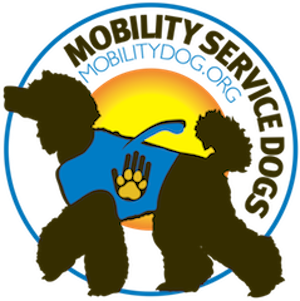Common Orthopedic Problems in Dogs
Common Orthopedic Problems in Dogs
Few experiences bring more joy to dog lovers than seeing our pups running, jumping, and frolicking. Conversely, few things are more distressing than seeing a dog limp in pain, unable to enjoy a fully active life. Sadly, like humans, dogs are subject to orthopedic problems. And, as with humans, the problems can have their roots in injury, overactivity, or genetics.
Here are some common issues, their causes and possible responses.
Hip Dysplasia
Hip dysplasia occurs when a puppy’s hip joints form abnormally, causing friction within the hip’s ball and socket structure. Over time, the dog feels pain and suffers a loss of mobility. The tendency to experience hip dysplasia is a genetically inherited trait most common among large dogs, including our beloved standard poodles.
The genetic component makes it difficult to avoid dysplasia entirely, but dog owners can take steps to mitigate the problem:
Consider adopting a mixed-breed big dog. As with many harmful traits, dogs with a varied genetic background are less likely than purebreds to suffer from detrimental inherited conditions.
If you decide on a purebred canine, choose a breeder that screens for hip dysplasia and other genetically transported conditions.
Avoid excessive exercise when your dog is a pup. Allow the hip joint to mature and strengthen before you put her through her paces.
Feed your dog a balanced diet and watch Princesses’s weight. Overweight pooches are more prone to joint problems than their slimmer counterparts.
Several forms of surgery, including a complete hip replacement, are possible treatments for hip dysplasia.
Torn Cruciate Ligament
Athletic dogs, like athletic humans, can suffer torn ligaments. The Cranial Cruciate Ligament (CCL) is the canine equivalent of the Anterior Cruciate Ligament (ACL) in humans. The CCL connects the dog’s shin to the thigh bone, allowing proper knee movement. Overexercising, especially activities that require a dog to make sudden turns and changes of speed, can cause ligament tears. Again, large breeds like Rottweilers, St. Bernards and Labrador retrievers are especially prone to this type of injury. So watch your animal's weight and incorporate time for rest and recovery in their exercise sessions. A dog with a torn CCL will require surgery, as these injuries do not heal on their own.
Luxated Patella
Your dog’s patella (kneecap) rests in a groove between the femur and the shin. A luxated kneecap is out of place or dislocated. Unlike hip dysplasia and ligament tears, this injury appears most often in small breeds like the Bichon Frise, Chihuahua and Maltese terrier.
In some cases, anti-inflammatory medication may provide relief for a dog with a mild case of this condition. For more severe cases, several forms of surgery are available. These include restructuring of soft tissue to hold the patella in place; deepening the groove in which the patella naturally rests; and reshaping of bones to reduce deformities.
Arthritis
Degenerative joint disease is a bane of advancing years, for dogs and people alike. Symptoms – pain, stiffness, limping, aversion to exercise – emerge over time and intensify with age. Continued moderate exercise helps keep joints moving and healthy, but can’t postpone the inevitable. Prescription pain medications, especially anti-inflammatories, can provide some relief.
Dogs – all of them, regardless of breed – were made to move. (Some more than others, it's true – your English Bulldog will never run like a Greyhound.) Orthopedic problems prevent our pooches from being the active beasts they want to be, and the exercise buddies we want them to be. The same approaches we take to our activities – watching our weight, exercising prudently, ensuring proper recovery and seeking medical treatment as needed – can help ensure our dogs remain orthopedically healthy and active for a lifetime.
MobilityDog’s Service Dogs uses NuVet Suppliments! www.nuvet.com/912519

